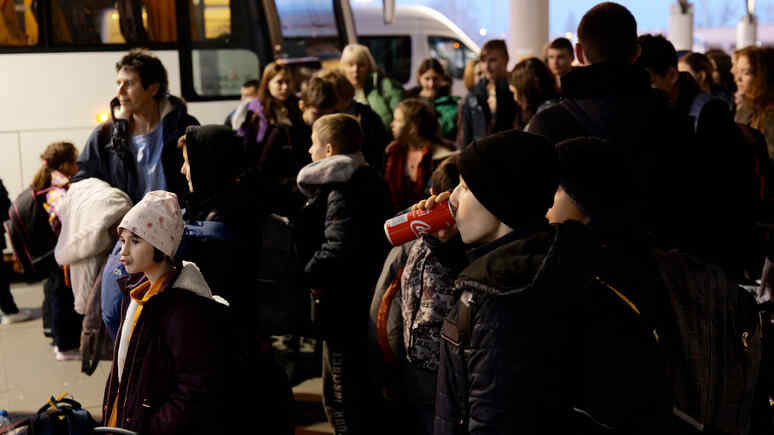Thousands of Ukrainian refugee families in Britain this winter risk becoming homeless. The Guardian reports that according to a study by the British Red Cross, Ukrainians are four times more likely to face such a scenario than everyone else. Ukrainians were at risk because of the possibility of breaking relations with landlords, language barriers and difficulties in the housing market.
According to a study by the British Red Cross, thousands of Ukrainian refugee families are at risk of becoming homeless this winter. According to The Guardian, the report says that by the end of the current financial year, 6,220 Ukrainian refugee families will seek help, which is 13 per cent more than the figure for 2022-2023. Nearly 5,000 of them are predicted to experience homelessness factors such as sleeping on the streets, wandering through acquaintances and staying in a hostel.
The researchers found that Ukrainian families in Britain are at a higher risk of becoming homeless than others. In 2022-23, a total of 298,430 families, or 1.24 per cent of all households in England, applied for appropriate support. And this fourfold risk is spread across the country.
The study is published at a time of growing demand for affordable housing across the UK. Ukrainians have been put at risk because of the potential for broken relationships with landlords, language barriers and difficulties in the housing market.
There are currently over 192,000 Ukrainians living in the country who have arrived under two main government programmes: Homes for Ukraine, where they are hosted by British families, and the UkraineFamily Scheme, which allows Ukrainians to move in with relatives already settled in the UK.
The key recommendations to prevent a homelessness crisis among Ukrainians include several points. These include extending landlord payments into the third year of the Homes for Ukraine programme, which were originally only envisaged for the first two years, supporting local authorities to provide tenancy guarantors and tenancy security schemes to help Ukrainians access the private rented housing market, and increasing local housing allowances, which are used to calculate appropriate rates in line with market prices.
Victoria, one of the British Red Cross’s wards, fled Ukraine to the UK through the Homes for Ukraine programme with her disabled mother and seven-year-old son. Relieved to be safe and secure, they never expected to face the threat of being homeless after just six months in their new place.
“I was worried we’d end up on the streets and I had no idea what to do. Not knowing what’s next for you is very stressful,” she shared.
The family managed to get support from the municipal council and the Red Cross to find rented accommodation, but the problems did not end there: “We are not allowed to apply for citizenship, we work tirelessly and have no idea what will happen next. After a pandemic and armed conflict, you want to be able to plan for the future.”
Head of information and legal affairs at the British Red Cross Olivia Field said: “This winter we expect thousands of men, women and children from Ukraine to be homeless in the UK. British Red Cross staff are increasingly encountering their requests for help and support in finding long-term accommodation. They are often unable to make a down payment on rent and risk being excluded from council homelessness programmes. We also know that because of the cost of living crisis, many host families who have generously opened their doors to those in need are losing the ability to continue to do so.”

